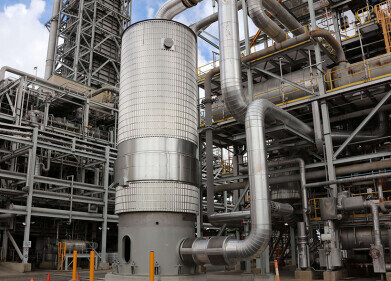-
 Offshore wind has helped to offset carbon emissions
Offshore wind has helped to offset carbon emissions
Air Clean Up
Scotland's green energy displaces transportation emissions
Oct 08 2013
Green energy in Scotland has helped to displace most of the carbon emissions that are created by transportation. Renewable technologies, such as biomass boilers and wind turbines, have successfully displaced almost all of the emissions that were created by rail and road transportation sectors in 2012.
Michael Fallon, energy minister, confirmed last month following a parliamentary question that 10.3 million tonnes of carbon dioxide was displaced last year, which represented a 24 per cent increase when compared to 2011's figures. Green energy accounted for a total of 14,825 gigawatt hours last year in Scotland.
According to Niall Stuart, chief executive of Scottish Renewables, the amount of carbon dioxide is equivalent to displacing 99.1 per cent of emissions that are created by every lorry, bus, car and train trip throughout Scotland.
"Renewables now generate the equivalent of 40 per cent of the demand for power from every home and business in the country, support thousands of jobs across Scotland and are making a massive dent in carbon emissions," he continued.
"The sector is delivering exactly what government wants - jobs, investment and lower carbon emissions from our economy."
The increase in Scottish renewable energy shows the country's commitment to combating climate change by reducing the amount of emissions created by energy generation. Scotland's carbon footprint has been significantly decreased and could be leading the way for the UK as provisions are made to meet with the EU's emissions targets.
Mr Stuart also made a call for an increase in the amount of green energy projects that are in operation around the world in order to reduce global emissions. His support followed on from the Intergovernmental Panel on Climate Change's fifth assessment, which highlighted that the biggest cause of global warming since the 20th century has been human influence.
As demand for power grows around the world, investing in more renewable sources of energy could help to further reduce global emissions and slow the effects of climate change. Some have argued that it would also provide cheaper energy to both businesses and homes in many countries across the world.
Events
May 05 2024 Seville, Spain
May 13 2024 Munich, Germany
May 23 2024 Beijing, China
May 23 2024 Beijing, China
Jun 10 2024 Algiers, Algeria













